Corporate-sponsored symposia are sessions that are planned and presented by AAIC sponsors to complement the AAIC program. These events provide attendees the opportunity to learn more about important topics and ideas for clinicians, researchers and dementia care professionals. All times are listed in Eastern Time (North America).
On This Page:
- Advances in Blood-Based Biomarkers for Alzheimer Disease: Integrating the ATN Framework Amidst Disease Heterogeneity
- Treatment: Engaging Patients, Caregivers, and Multidisciplinary Providers in the Shared Goal of Optimizing the Use of Anti-Amyloid Therapies
- Smoldering Alzheimer’s Disease: The Ongoing Benefit of Addressing Multiple Pathologies
- Clinical Utility of the Plasma p-tau217/Aβ42 Ratio for Early Detection and Monitoring of Alzheimer’s Disease
- Diagnosis: Engaging Patients, Caregivers, and Multidisciplinary Providers in the Shared Goal of Facilitating an Earlier Alzheimer’s Disease Diagnosis
- Redefining Care for Alzheimer’s Disease: A New Generation of Treatment Approaches
- New Approaches to Treat Agitation in Alzheimer's Disease
- Innovating with the Patient in Mind: Opportunities Across the Alzheimer's Disease Continuum From Early Disease to Symptom Management
- Advances in the Treatment of Neuropsychiatric Symptoms of Alzheimer's Disease: Early Recognition, Diagnosis, and Innovative Emerging Therapies
- Unlock your Brain: Exploring Alzheimer’s Disease from the Inside Out
- Inhibition of Beta Amyloid Oligomer Neurotoxicity with Oral Valiltramiprosate
- Advancing Care: Multidisciplinary Perspectives on Evidence-based Management of Agitation Associated with Dementia Due to Alzheimer’s Disease
- Brain Health Navigator — Ensuring Efficient and Effective Alzheimer's Disease Diagnostic and Clinical Care Pathways
- From the Case Files: Treating Early Symptomatic Alzheimer’s Disease
Sunday, July 27
Monday, July 28
Tuesday, July 29
Wednesday, July 30

Advances in Blood-Based Biomarkers for Alzheimer Disease: Integrating the ATN Framework Amidst Disease Heterogeneity
Sunday, July 27
12:30 – 1:45 p.m.
The Westin Harbour Castle (Frontenac Ballroom)
Established brain PET and cerebrospinal fluid (CSF) amyloid and tau biomarkers have reshaped our understanding of Alzheimer’s disease (AD) as a continuum from preclinical stages to dementia. AD progression follows a sequence of amyloid (A), tau (T), and neurodegeneration (N) changes, with clinical symptoms closely aligning with tau neurofibrillary tangles (NFTs) and neurodegeneration. Developed to enable more accurate diagnosis, the ATN biomarker framework is shifting the focus from clinical features to biomarker-based identification.
Advancements in blood-based biomarkers (BBBMs) can potentially offer a less invasive alternative to CSF and neuroimaging, with potential to detect early disease progression, support the development of targeted treatments, and potentially enhance patient care. Plasma amyloid-β42/β40 ratios correlate strongly with amyloid PET imaging, while phosphorylated tau species—particularly p-Tau181, p-Tau217, and p-Tau231—are emerging as potential indicators of amyloid and, to a lesser extent, tau pathology. Lack of specificity for tau pathology and inability to account for co-pathologies challenge clinical utility of current BBBMs.
Further refinement of the ATN framework may support drug development and facilitate patient care. This work explores integration of BBBMs with the ATN diagnostic framework, addressing their potential and limitations in capturing the multifaceted nature of AD.
Sponsored by: Beckman Coulter Diagnostics, Biogen and Fujirebio
Treatment: Engaging Patients, Caregivers, and Multidisciplinary Providers in the Shared Goal of Optimizing the Use of Anti-Amyloid Therapies
Monday, July 28
12:30 – 1:45 p.m.
The Westin Harbour Castle (Frontenac Ballroom)
This program aims to provide clinicians with up-to-date information on treatment for early symptomatic Alzheimer’s disease (AD). Through this program, clinicians will improve their ability to summarize the risk and benefit profile of anti-amyloid therapeutics for patients with early symptomatic AD and increase their competence with facilitating multidisciplinary shared decision-making discussions with patients and caregivers that accurately describe potential benefits, risks, and associated monitoring requirements of anti-amyloid therapies. Innovative learning strategies including small group breakouts and incorporating the patient/caregiver perspective via faculty discussions with a real caregiver on stage and the use of holographic simulations at the entrance to the meeting room will reinforce these key takeaways. Our goal is to provide information that empowers clinicians to make informed treatment decisions, thereby improving the standard of care for patients with this challenging disease.
Features:
- Online personalized quality-improvement poster-generation portal
- Access to DETECT Community of Care Website
- HyperVSN Holographic Patient/Caregiver Simulation
This activity is supported by an educational grant from Lilly. Med Learning Group designates this live activity for a maximum of 1.5 AMA PRA Category 1 Credit™
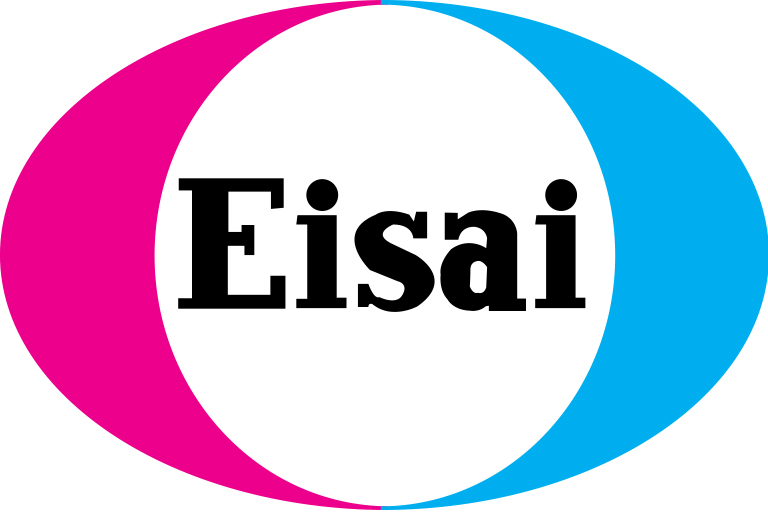
Smoldering Alzheimer’s Disease: The Ongoing Benefit of Addressing Multiple Pathologies
Monday, July 28
6 – 7:30 p.m.
The Westin Harbour Castle (Frontenac Ballroom)
Join us for an exciting symposium where we will introduce and explore the concept of smoldering Alzheimer’s disease (AD). We will guide attendees through the meaning of “smoldering”, which can be described as an insidious constellation of pathological changes (beyond a focal event) that drives disease progression over time. While it is a novel concept in AD, smoldering is familiar across many chronic diseases, including multiple myeloma, multiple sclerosis, and lupus. The process of smoldering AD will be explored from the preclinical phase, characterized by the silent accumulation of Aβ42 oligomers and protofibrils, to the ignition of toxic downstream events that unfold and extend beyond the formation of amyloid plaque (the focal event in this model), including the spread of hyperphosphorylated tau, inflammation, and neurodegeneration, and eventual clinical deterioration. We also consider how smoldering AD continues to drive disease progression in the absence of amyloid plaque, highlighting the clinical importance of smoldering disease.
Separately, we will explore how an anti-amyloid therapy addresses AD pathophysiological processes, including and extending beyond plaque removal. Importantly, this translates to ongoing clinically meaningful benefit as evidenced by a placebo-controlled trial, post-hoc analyses, open-label extension data, and real-world evidence from clinical practice.
Sponsored by: Eisai

Clinical Utility of the Plasma p-tau217/Aβ42 Ratio for Early Detection and Monitoring of Alzheimer’s Disease
Tuesday, July 29
6:15 – 7:45 a.m
The Westin Harbour Castle (Harbour Ballroom)
The plasma p-Tau217/Aβ42 ratio has emerged as a powerful biomarker for early detection and monitoring of Alzheimer’s disease (AD). Research led by Marc Suarez-Calvet and Nicholas Ashton demonstrates its clinical utility, showing that this ratio reliably reflects amyloid and tau pathology in the brain. In studies involving cohorts such as ALZAN and ADNI, the ratio outperformed individual biomarkers in identifying amyloid positivity (Aβ+), achieving high accuracy (AUC > 0.92). It also predicted regional tau accumulation with high sensitivity, potentially reducing the need for costly and less accessible tau PET scans.
In real-world clinical settings, this ratio may be integrated into diagnostic workflows to assess early AD risk, especially in individuals with mild cognitive impairment. Blood-based testing is minimally invasive, cost-effective, and scalable, making it ideal for use in primary care or memory clinics. It could help identify patients who would benefit from further evaluation or early therapeutic intervention. Additionally, the ratio is less affected by comorbidities such as renal dysfunction, enhancing its reliability across diverse populations.
Overall, the p-Tau217/Aβ42 ratio could represent a significant step toward accessible, accurate, and timely AD diagnosis, supporting population-wide screening, clinical trials, and personalized treatment strategies in the fight against AD.
Sponsored by: Danaher and Beckman Coulter Diagnostics
Diagnosis: Engaging Patients, Caregivers, and Multidisciplinary Providers in the Shared Goal of Facilitating an Earlier Alzheimer’s Disease Diagnosis
Tuesday, July 29
6:15 – 7:45 a.m
The Westin Harbour Castle (Frontenac Ballroom)
This program aims to provide clinicians with up-to-date information on up-to-date information on screening and diagnosis of early symptomatic Alzheimer’s disease (AD). Through this program, clinicians will improve their ability to interpret the results of cognitive screening and increase their familiarity with the current diagnostic criteria for early symptomatic AD to be used after cognitive concerns are detected by screening, including biomarker- and imaging-based approaches. Innovative learning strategies including small group breakouts and incorporating the patient/caregiver perspective via faculty discussions with a real caregiver on stage and the use of holographic simulations at the entrance to the meeting room will reinforce these key takeaways. Our goal is to provide information that empowers clinicians to make informed diagnostic decisions, thereby improving the standard of care for patients with this challenging disease.
Features:
- Online personalized quality-improvement poster-generation portal
- Access to DETECT Community of Care Website
- HyperVSN Holographic Patient/Caregiver Simulation
This activity is supported by an educational grant from Lilly. Med Learning Group designates this live activity for a maximum of 1.5 AMA PRA Category 1 Credit™
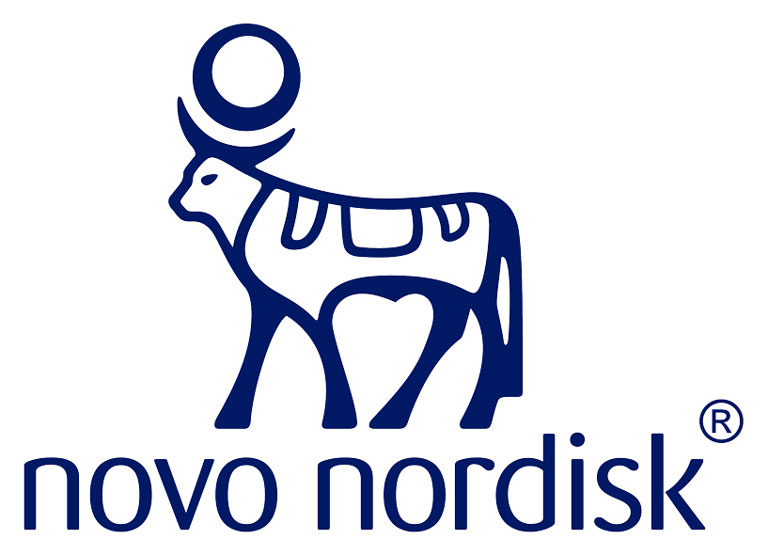
Redefining Care for Alzheimer’s Disease: A New Generation of Treatment Approaches
Tuesday, July 29
12:30 – 1:45 p.m
The Westin Harbour Castle (Harbour Ballroom)
Alzheimer's disease (AD) is a multifactorial neurodegenerative disorder that continues to challenge clinicians, researchers, patients, and caregivers alike — not just because of its complexity, but because of the gaps that remain in how we diagnose, understand, and care for those affected. Despite the latest scientific advances, many individuals living with AD still face delays in diagnosis, barriers to accessing care, and challenges with existing treatments.
This symposium, led by distinguished global experts Atsushi Iwata, Sudha Seshadri, Babak Tousi, and Sharon Cohen (who will also chair), will examine the holistic unmet needs faced by patients living with AD, with an emphasis on advancing understanding of the humanistic, diagnostic, and treatment-related challenges. Additionally, it will explore the value of early detection and intervention, along with the role of neuroinflammation and vascular dysfunction in AD pathogenesis and progression. Lastly, it will focus on how tailored care, combination therapy, and multidisciplinary approaches can make a difference in addressing the distinct and complex needs of individual patients.
This symposium will be a dynamic program of short presentations, panel discussions, and interactive Q&A sessions, providing an opportunity to gain cutting-edge insights, join thought-provoking conversations, and engage with experts redefining how we understand and address AD.
Sponsored by: Novo Nordisk
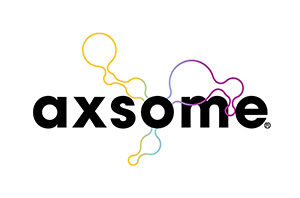
New Approaches to Treat Agitation in Alzheimer's Disease
Tuesday, July 29, 2025
6 – 7:30 p.m.
The Westin Harbour Castle (Frontenac Ballroom)
Behavioral and psychological symptoms of dementia (BPSD) are experienced by almost all people with Alzheimer’s disease (AD). This symposium will review the epidemiology of BPSD with a specific focus on agitation in AD. We will discuss the symptom domains of agitation, the International Psychogeriatric Association (IPA) diagnostic criteria for agitation in cognitive disorders, and the multiple sequelae of agitation in individuals with AD including acceleration of cognitive decline/hospitalization, increased caregiver burden/resource utilization, and diminished function and quality of life. We will also examine various treatment algorithms to address agitation symptoms (i.e. the IPA and DICE approaches) emphasizing non-pharmacological treatment options as first line therapy.
In addition, we will outline the current landscape of pharmacological treatments for AD agitation along with their benefit/risk profile. We will also delve into potential neuropathological etiologies of agitation in AD including dysregulation of prefrontal cortex and amygdala connectivity and the underlying contributions of various neurotransmitters and receptors. With this in mind, we conclude with an overview of investigational products that are being studied to address this enormous unmet medical need in the treatment of agitation in AD.
Sponsored by: Axsome Therapeutics, Inc.

Innovating With the Patient in Mind: Opportunities Across the Alzheimer's Disease Continuum From Early Disease to Symptom Management
Tuesday, July 29, 2025
6 – 7:30 p.m.
The Westin Harbour Castle (Harbour Ballroom)
This program explores the evolving therapeutic development landscape of Alzheimer's disease, from early intervention strategies focused on slowing biological progression to the management of emerging neuropsychiatric symptoms. Through examination of underlying mechanisms, current treatments, and investigational approaches, the program highlights opportunities to impact the burden of this disease for patients with approaches across the Alzheimer's disease continuum.
Presenter title/affiliations:
George T. Grossberg, M.D.
Henry & Amelia Nasrallah Endowed Professor and Director of Division of Geriatric Psychiatry — Saint Louis University School of Medicine, United States
Sponsored by: Bristol Myers Squibb
Advances in the Treatment of Neuropsychiatric Symptoms of Alzheimer's Disease: Early Recognition, Diagnosis, and Innovative Emerging Therapies
Wednesday, July 30
6:15 – 7:45 a.m
The Westin Harbour Castle (Frontenac Ballroom)
Join us to learn about the diagnosis of NPS associated with Alzheimer's disease, as well as current and emerging agents for treatment. Neuropsychiatric symptoms (NPS) associated with Alzheimer's disease (AD), such as psychosis and agitation, affect up to 50% of individuals with AD yet remain underdiagnosed and undertreated in clinical practice. These symptoms accelerate cognitive decline, increase mortality risk, and substantially worsen patient and caregiver quality of life. Our symposium will provide a practical and engaging discussion of the underlying pathophysiology of NPS associated with AD, the limitations of off-label antipsychotic use, and emerging therapeutic agents targeting NPS associated with AD.
In support of improving patient care, Global Learning Collaborative (GLC) is jointly accredited by the Accreditation Council for Continuing Medical Education (ACCME), the Accreditation Council for Pharmacy Education (ACPE), and the American Nurses Credentialing Center (ANCC) to provide continuing education for the healthcare team.
Provided by TotalCME, LLC.
This activity is supported by an independent educational grant from Bristol Myers Squibb. Global Learning Collaborative (GLC) designates this live activity for a maximum of 1.0 AMA PRA Category 1 Credit(s)™, 1.0 nursing contact hour(s), 0.1 CEUs of pharmacy contact hour(s), and 1.0 AAPA Category 1 CME credit(s).

Unlock your Brain: Exploring Alzheimer’s Disease from the Inside Out
Wednesday, July 30
6:15 – 7:45 a.m
The Westin Harbour Castle (Harbour Ballroom)
Join us for an engaging and educational session exploring the complex pathophysiology of Alzheimer’s disease (AD) amid the evolving therapeutic landscape. Utilizing interactive activities, clinical experts will guide attendees through the intricacies of the biological changes that underpin AD. This session will aim to clarify the underlying AD pathophysiological processes and how they contribute to disease progression, with a reimagined focus on the amyloid cascade and its downstream effects. The connection between the underlying biological mechanisms and AD clinical manifestations will be elucidated by demystifying the multifactorial pathophysiology, highlighting how chronic disease dynamics can influence patient outcomes. As we unlock the science behind the disease, participants will also learn how advances in research are shaping the future of care. You will be able to participate in educational activities to challenge and share your AD knowledge with fellow attendees, ask questions, and deepen your understanding of AD fundamentals in the advent of emerging therapies.
This session offers a clear and impactful look at AD from the inside out; leave with a deeper knowledge of its biological basis and where innovation is headed.
Sponsored by: Eisai
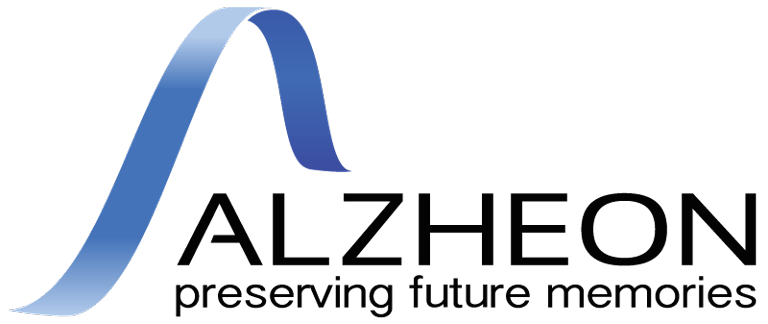
Inhibition of Beta Amyloid Oligomer Neurotoxicity with Oral Valiltramiprosate
Wednesday, July 30
12:30 – 1:45 p.m
The Westin Harbour Castle (Frontenac Ballroom)
Pathogenic Role of Beta Amyloid Oligomers in Alzheimer’s Disease (AD)
- Overview of amyloid cascade in AD
- Differentiating beta amyloid species by neurotoxic profile
- Measuring and detecting oligomers in AD patients
Insights into Mechanism of Action of Valiltramiprosate
- Impact of valiltramiprosate on beta amyloid aggregation and oligomer formation
- Anti-aggregation stoichiometry of beta amyloid monomer to valiltramiprosate
- Implications for therapeutic utility of valiltramiprosate in AD
QSP Analysis of Inhibition of Amyloid Oligomer Formation by Valiltramiprosate
- Influence of APOE4 genotype on disease trajectory as measured by quantitative systems pharmacology (QSP)
- QSP analysis linking amyloid-ß aggregation dynamics and neurodegeneration by hippocampal atrophy
- Valiltramiprosate effects on Aβ aggregation dynamics, hippocampal atrophy & AD trajectory
Disease Modifying Effects of Valiltramiprosate in Early Symptomatic AD
- Development of valiltramiprosate: an optimized prodrug
- Disease modifying effects of valiltramiprosate in early symptomatic AD
- Stage-dependent effects of valiltramiprosate linked to MOA
Presenters:
- Sharon Cohen, M.D.
- Sam Gandy, M.D., Ph.D.
- Kenjiro Ono, M.D., Ph.D.
- Hugo Geerts, Ph.D.
- John Hey, Ph.D.
Sponsored by: Alzheon

Advancing Care: Multidisciplinary Perspectives on Evidence-based Management of Agitation Associated with Dementia Due to Alzheimer’s Disease
Wednesday, July 30
12:30 – 1:45 p.m
The Westin Harbour Castle (Harbour Ballroom)
Agitation symptoms are among the most prevalent and challenging behavioral and psychological symptoms of dementia (BPSD). Agitation associated with dementia due to Alzheimer’s disease is a distinct clinical challenge associated with patient, caregiver and economic burden, yet it remains underrecognized by caregivers and underdiagnosed by healthcare providers.
This symposium will review the evidence on the diagnosis, evaluation and treatment of symptoms of agitation in Alzheimer’s dementia. The discussion will cover the identification and differential diagnosis of agitation symptoms, the application of structured clinical tools and criteria, and the role of nonpharmacologic strategies tailored to individual patient needs. Pharmacologic treatment options will also be reviewed, as well as ongoing developments in the treatment landscape.
An interactive panel discussion, including a caregiver perspective, will explore additional considerations in the diagnosis and treatment of agitation across care settings.
Sponsored by: H. Lundbeck A/S and Otsuka Pharmaceutical Europe Ltd.

Brain Health Navigator — Ensuring Efficient and Effective Alzheimer's Disease Diagnostic and Clinical Care Pathways
Wednesday, July 30
6 – 7:30 p.m.
The Westin Harbour Castle (Harbour Ballroom)
Alzheimer’s disease and related dementias (ADRD) represent one of the most significant public health challenges of our time. Despite the growing prevalence of ADRD, pathways for timely and accurate diagnosis remain underdeveloped or non-existent. Current care systems necessitate rapid and efficient multi-stakeholder coordination to ensure that candidates eligible for therapeutic interventions receive them early, when they are most beneficial. However, even with available therapies, the diagnostic journey for patients and health systems remains slow and cumbersome, often leaving families without access to all available care options.
To address this challenge, Eisai identified the need for improved coordination and collaborated with the Davos Alzheimer’s Collaborative Healthcare System Preparedness team (DAC-SP). Together, they developed the Brain Health Navigator (BHN) program, which provides resources for boundary-spanning roles to manage coordination between patients and providers along the care pathway.
The BHN program supports six U.S. healthcare systems, serving as incubators for the development of materials and best practices for timely care for patients with cognitive decline. The objectives of this program are to: empower health systems to rapidly identify cognitive decline in frontline settings, streamline the diagnostic journey for patients and health systems to specialty care, where applicable, connect patients experiencing cognitive decline to appropriate care and support, and develop and evaluate a model that is both scalable and sustainable nationally, and across diverse health settings.
This session will feature presentations from BHN health systems. Presenters will describe their current models and care practices, share their participation in the program including key learnings and accomplishments, and discuss long-term goals for program sustainability and scalability across the country.
Sponsored by: Eisai

From the Case Files: Treating Early Symptomatic Alzheimer’s Disease
Wednesday, July 30
6 – 7:30 p.m.
The Westin Harbour Castle (Frontenac Ballroom)
Join us for this engaging discussion between two experts as they discuss the treatment of early symptomatic Alzheimer’s disease through real patient cases. Their conversation will cover talking to patients about treatment, weighing risk and benefit, logistics of initiating treatment, managing treatment once started, and much more. Bring your questions and settle in for this compelling and educational presentation.
Sponsored by: Lilly
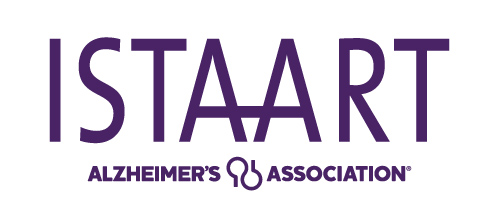
Advance Your Career
Join ISTAART, an inclusive global network of scientists, clinicians and dementia professionals. With newly discounted rates and free memberships for students, it’s easier than ever to become a part of ISTAART.